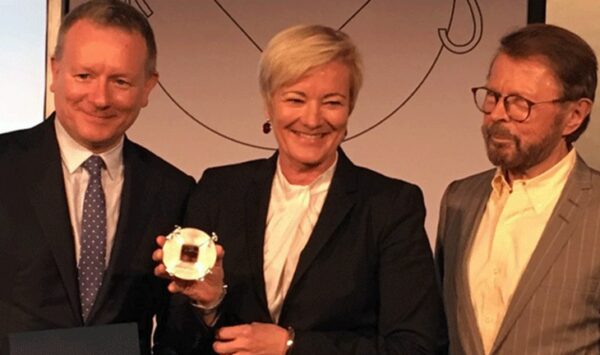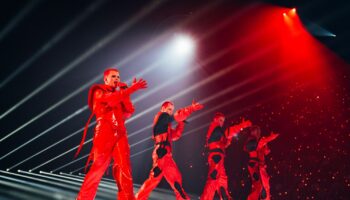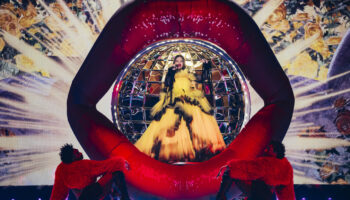Just next month we will #cometogether for the 2016 Eurovision Song Contest, and today (Thursday 28 April) saw the Eurovision Song Contest awarded the 2016 Charlemagne Medal (Médaille Charlemagne pour les Médias Européens) for media that has contributed to European unity.
A deeply prestigious honour, since 2000 the Charlemagne Medal has been awarded annually to figures/institutions instrumental in the field of European unity, and to those involved in the significant development of European identity in the media.
Björn Ulvaeus of Swedish Eurovision Song Contest legends ABBA (their entry Waterloo famously won the competition in 1974) presented the Medal to Eurovision Song Contest Executive Supervisor Jon Ola Sand and the European Broadcasting Union’s Director General Ingrid Deltenre at a ceremony at Aachen, Germany. He took the opportunity to make the following powerful speech:
For me the Eurovision Song Contest is a powerful symbol and I would say, even a weapon in the fight against the dark forces that want to drag us back to the middle ages again. It is more relevant than ever. I feel that during those hours, those bright, uplifting hours when the Eurovision final is on the air, that’s one of the few times nowadays when Europe gets a sense of what it’s like to be unified; to live in harmony. Music has the power to unify – it knows no borders. For 60 years the marriage of television and music through the Eurovision Song Contest has brought nations closer together and this is apparent through the numbers of people the event reaches, 199 million in 2015, and also through the number of nations that now take part; from 7 countries in 1956 to the 42 competing in Stockholm in 2 weeks’ time.
Jon Ola Sand expressed the following sentiments:
Our motto in Stockholm this year is “Come Together” and I am so proud that The Eurovision Song Contest still provides a unique opportunity for audiences from across Europe and beyond to do just that during three great live shows every year. The EBU is thrilled to be awarded this medal by Björn Ulvaeus from arguably the most successful Eurovision winners of all time, ABBA. He still provides inspiration for today’s artists competing in the world’s biggest music entertainment show.
Ingrid Deltenre also spoke of the honour:
It is a great honour to receive this renowned award, from the Charlemagne Medal Committee, as we prepare to celebrate the 61st Eurovision Song Contest in Stockholm. 60 years ago the first Eurovision Song Contest was held with the aim of bringing nations together. Music knows no national boundaries and provides a common language for us all. The friendships formed between the competing artists from over 40 nations come through the screen to audiences watching at home. The fact that the Eurovision Song Contest is so popular in an increasingly polarized world illustrates that the differences are smaller than we think.
The Chairman of the Charlemagne Medal Committee, Michael Kayser, explained why the Eurovision Song Contest was rewarded:
If you look at the public discussion in and around Europe, it is evident that, in a large number of countries, this is driven primarily by notions of asserting one’s own national interests. This makes it very hard for a genuine feeling of European togetherness to emerge among the citizens. As a Europe-wide music show, the Eurovision Song Contest unites people. It brings them together through the music and the show – a feat which is currently hard to achieve at a national level.
Previous recipients of the Charlemagne Medal include musician André Rieu, the editors of the Russian newspaper Novaya Gazeta, the organisation “Reporters without Borders” and the OSCE representative of Freedom of the Media, Dunja Mijatović.
The Eurovision Song Contest 2016 takes place on 10, 12 and 14 May from the Globen Arena in Stockholm, Sweden.




